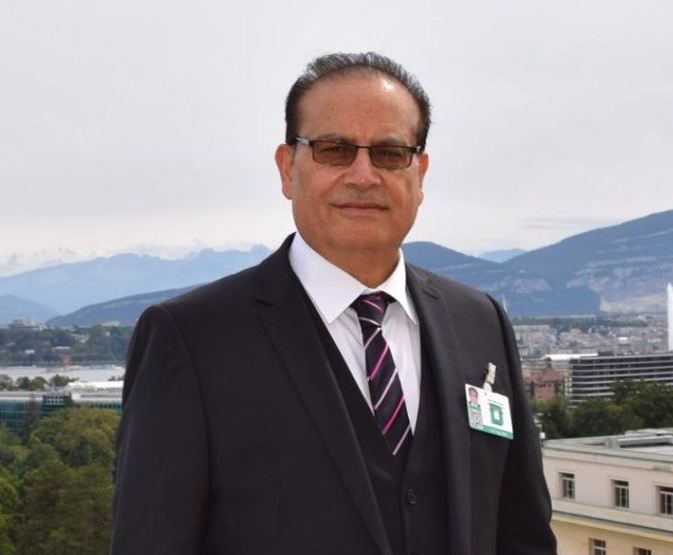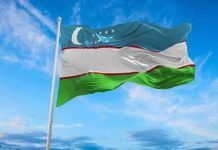By: Qamar Bashir
At this critical juncture, the entire PTI leadership must unite and focus their undivided attention and collective energies of politicians, lawyers, and technocrats to navigate the party out of its current challenges. The visible discord among party leaders stands as perhaps the greatest threat, capable of causing irreparable harm.
If the current leadership fails to acknowledge the fundamental flaws in the party’s current composition, strategy, and plans—marked by a narrow representation largely dominated by lawyers, technocrats, and KP-based political activists—lack of plan to secure the release of their leaders, and neglects to open the party’s doors for broader and more diverse representation, they would undermine the party’s integrity.
Such actions would not only betray the PTI’s founding principles and the national cause it champions but also disregard the enduring hardships and sacrifices, including imprisonment, endured by its leader Imran Khan over nearly a year.
This internal division came at a crucial time when unity, solidarity, and comradeship were most dearly needed to address critical and game changing challenges faced by the party. These challenges include the need for an urgent, doable and well thought out actionable plan to secure the release of Imran Khan and other incarcerated leaders, activists, and workers and reclaim their stolen mandate.
Additionally, PTI needs a coherent and highly effective strategy to defend numerous legal cases across various courts, including the Supreme Court. They must realize that the fate of the party hangs in the balance with the pending verdicts of the Supreme Court on several critical cases that hold existential value for both the party and its leadership.
The party needs to understand that the Supreme Court’s decisions in sensitive cases concerning electoral irregularities, PTI’s political status, the return of election symbols, and the restoration of special seats for women and minorities will shape PTI’s future trajectory. Ironically, in the sub-judice case of allocation of special seats for women and minorities to SIC, PTI reason best known to it, neglected to participate, a flaw that Supreme Court judges themselves lamented with concern.
PTI must realize that these cases demand the undivided attention of the party and require their collective ability to mobilize the public on a large scale in support of their demands. This is crucial to demonstrate PTI’s resilience and capability to achieve its goals even in challenging circumstances.
In this background, PTI urgently needs a well-thought-out and fully articulated political and legal vision, strategy, and action plan to present a robust defense that convinces the full bench of the Supreme Court and aids the supreme court in reaching decisions aligned precisely with the constitution and the greater good of the people and the country.
It is also crucial for the party to promptly determine whether the party’s cause or positions in government, party, or parliament hold greater importance. Equally critical is resolving whether political sacrifices rendered by the political leadership, lawyers or technocrates should be the sole criterion for their elevation to positions of power, or if competency and suitability for the role should be paramount considerations. They must also decide whether to air their internal disagreements in public, or resolve their egotistical, self-aggrandizing differences in private or on the party platform.
Indeed, the lawyers who stood by Imran Khan through thick and thin, keeping the party afloat while political leaders were incarcerated, in hiding, or abroad, or deserted the party, deserve commendation for their remarkable job.
However, they should also recognize that their talents lie in law rather than politics. They should focus on research, seek guidance from political leadership, and develop a strong, lawful defense for cases across various judicial levels from civil court to the Supreme Court. They should willingly step aside to allow political leaders to lead the party politically and provide them with political insight while crafting defenses.
Similarly, technocrats like Raoof Hassan and Hamid Khan, who may not have public followings, should continue to offer ideological guidance to the PTI founder and political leaders. They should refrain from meddling in or leading the political and legal decision-making processes where they lack competency or qualifications.
These three distinct departments—legal, ideological and political—working in harmony within their respective domains will significantly enhance the quality of the party and its decision-making processes. However, if individuals continue to dominate departments where they lack qualifications or competency, they would do a disservice to the party leader and the party itself.
At this critical juncture, with their leader facing immense hardship and nearing a year in prison for the greater cause of creating an egalitarian society and upholding the rule of law equally for all, every institution adhering to the constitution, and unlocking Pakistan’s full potential, it is disheartening that he must also contend with petty and ego-driven disputes among party leaders vying for positions based solely on their endurance of jail terms and hardships, rather than their skills, education, or public service record.
The party requires political leadership deeply rooted in the public, capable of mobilizing people to exercise their democratic and constitutional rights to protest to exert pressure on the government to meet their legitimate and legal demands, including the release of Imran Khan, his wife, and other political leaders, a re-evaluation of election results based upon form 45, the return of their allegedly stolen mandate, and the restoration of PTI as a recognized party with its election symbol.
This monumental task demands peace, unity, and consensus within the party at all levels, with responsibilities assigned based on suitability, capacity and ability. The political wing could be led by former President Mr. Arif Alvi, Omer Ayub, Fawad Chaudhary, Shibli Faraz, Asad Qaiser, Mohammad Ali Khan, and Shehryar Afridi and others who have sizable and organic public followings.
The legal wing should be headed by Sardar Latif Khosa, Salman Akram Raja, Gohar Ayub Khan, Sher Afzal Marwat, and others who have proven legal qualifications, expertise, experience and ability to navigate complex, intricate and sensitive legal complexities and present a credible and strong defense in favor of their plea.
The ideological wing may be led by Hamid Khan and Raoof Hassan and such other highly competent, articulate and committed intellectuals.
All wings must work in harmony, enjoying equal status, importance, and value, equal excess to Imran Khan and should unanimously and collectively focus on achieving overarching objectives rather than getting bogged down in trivial issues that could distract the party from its goals.
By: Qamar Bashir
Former Press Secretary to the President
Former Press Minister to the Embassy of Pakistan to France
Former MD, SRBC












